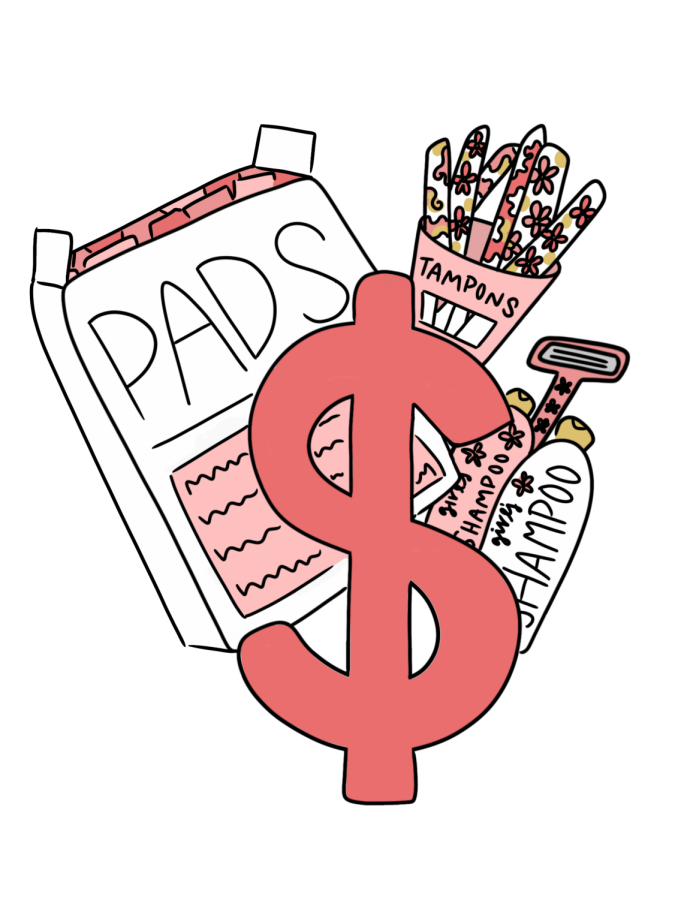FOCUS: Luxury taxes on menstrual products is costly to people in more ways than one
Reporting by Mokshitaa Dhamotharan and Soo Jin Spencer
Menstruating is not cheap, especially in America. According to instyle.com a 34-pack of Tampax Pearl Tampons cost $6.99, but in one of the 34 states that implement a luxury tax on menstrual products – referred to as the tampon tax – the same box of tampons costs an additional 30 to 50 cents.
For many, this budget appears to be affordable and not that big of an issue. For others who are barely scraping by, this cost becomes optional, and many replace menstrual products with toilet paper, or other substitutes.
“Women who can’t afford sanitary products have to resort to impractical ways, such as using a sock or rag, which can then lead to serious health consequences,” sophomore and PERIOD Club president Kavinaya Rajesh said.
Numbers of those battling with period poverty, the limited access to menstrual products, have grown tremendously throughout the United States as the pandemic continues. The increase in layoffs and job losses has led to a larger population of those struggling to afford menstrual hygiene products.
The impacts of the luxury tax on menstrual products have been acknowledged for years. However, they have been downplayed and outwardly ignored by many politicians. The New York Times reported only seven out of the promised 22 states have been successful in taking action against the tampon tax, one of them being California. Two bills eliminating sales taxes on menstrual products passed in early 2020, stated taxfreeperiod.com. This is only temporary and tampon taxes are expected to return shortly as both bills expire in 2022.
The tampon tax further exacerbates the effects of the pink tax, a metaphorical tax instituted by large corporations who utilize discriminatory gender-based pricing tactics. Essentially, those who purchase feminine-marketed products pay a surplus that is unrequired for identical male-marketed ones. Taxing menstrual products and allowing large corporations to profit off gender-based discrimination has raised many eyebrows regarding where the government’s priorities lie.
“It’s pretty unfair and pretty sneaky by a lot of the companies out there that are doing that,” English teacher Theresa Shaw-Iyer said. “Something definitely needs to be changed about that.”
Menstrual equity, a term advocating for fair access to menstrual products and information, is a goal some SCHS students are working to achieve. Clubs such as PERIOD and Girls Empowerment Project highlight the struggles many undergo monthly and remind others that periods are healthy, normal and absolutely nothing to be ashamed of.
“America, I hope we learn to prioritize everyone’s needs – men, women, trans, everyone,” senior Setareh Rahimpour said. “I just hope that one day we don’t have to worry about paying for these things that we need.”


